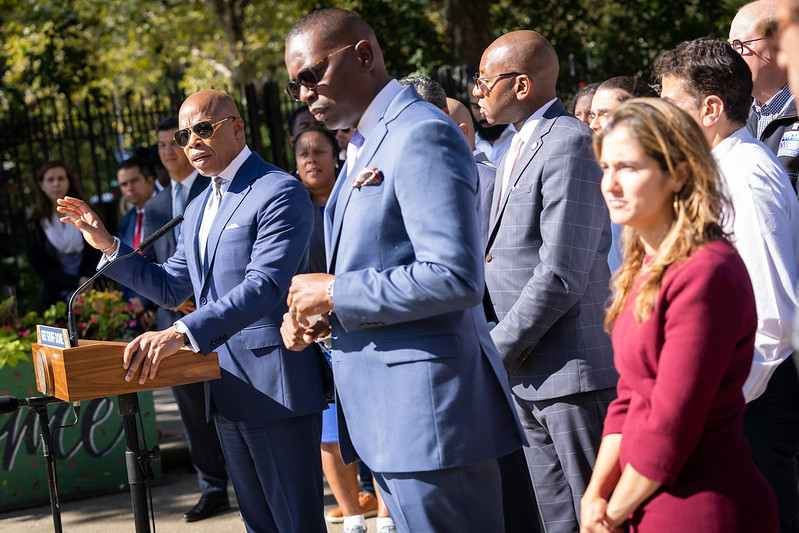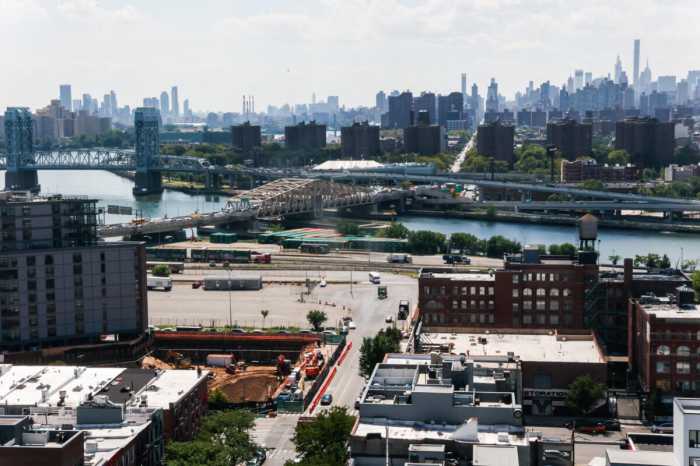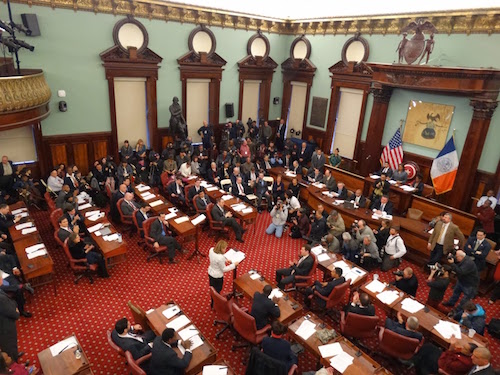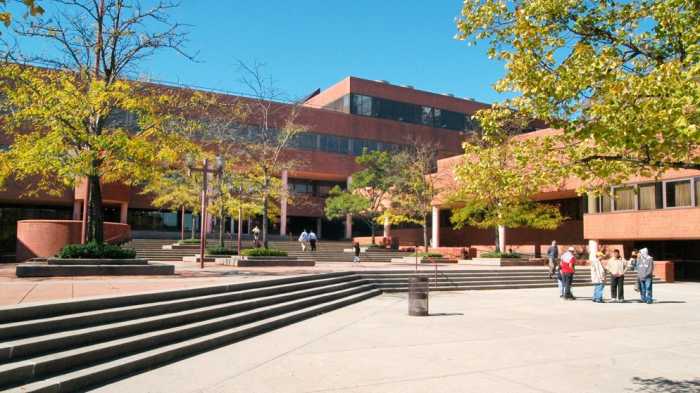Following a report that claimed one of Mayor Eric Adams’ top aides urged his NYC Districting Commission appointees to vote against revised City Council district lines last week, hizzoner said Tuesday if that happened, he was “not aware” of it.
Adams denied knowledge of the charge, first reported by Politico New York following the commission’s rejection of the revised maps last Thursday, in response to a question from PoliticsNY at an unrelated news conference Tuesday morning.
“I’m not aware that, if the deputy did, I’m not aware of that,” Adams said. “We’re going to continue to advocate to have fair maps and I’m not aware of anything other than us complying fully with the rules of mapping. You know, redistricting is important, so we want to make sure that we have fair maps and I trust my appointees.”
According to the published report, Adams’ Deputy Chief of Staff Menashe Shapiro called and texted the mayor’s seven appointees to the 15-member commission, telling them Adams opposed the plan and they should reject it. A move that ultimately proved successful, with the commission voting down the plan by an 8 to 7 vote.
Disclosure: Joshua Schneps, publisher of Schneps Media, is a member of the Districting Commission.
In addition to the mayor’s appointees, the commission is made up of five members appointed by City Council Speaker Adrienne Adams and three from Council Minority Leader Joe Borelli. Adams’ and Borelli’s appointees were those who led the vote rejecting the maps they’d helped draw.
Those who voted against the lines, cited issues like the splitting up of communities of interest – weakening the political influence of those groups – and with the map-making process itself.
The revised plan that was given the thumbs down last week was based on an initial set of draft maps released July 15. If the plan had been passed by the commission, the maps would then go to the City Council, which could either approve them or send them back to the commission for more tweaking.
One of the mayor’s appointees who didn’t toe the line, and voted “yes” on the maps, was commission Chair Dennis Walcott.
In a radio interview with WNYC’s Brigid Bergin Monday, Walcott said he thought the commission was going to approve the plan because they did a “comprehensive job” in drawing it up. He also wouldn’t indicate whether or not Shapiro urged him to vote against the maps, when Bergin asked about it.
“The conversations I’ve had with a variety of people I just keep to myself and my vote speaks for itself,” Walcott said. “I thought that we did a comprehensive job. We took into consideration a lot of the feedback both from the public as well as the commissioners themselves as well as staying within the tight guidelines of the City Charter, voting rights issues and all the complexities that we have. And so based on all that I felt very certain about what I felt were the maps that reflected all those conversations, so I voted yes.”
“I think you would have to really talk to the other Commissioners as far as what their feelings were,” he added.
The commission is set to hold two public virtual meetings this Thursday and Friday to reexamine and change the maps that were rejected. Several advocates and elected officials, including the good government group Citizens Union and Speaker Adrienne Adams, called for the commission’s deliberations to be opened up to the public, so no issues commissioners may have with the maps come as a surprise when it’s time to vote like they did last week.
Going forward, Walcott said, it’s important that the process be as free from political influence as possible.
“We have to stay above the fray as far as not getting into the political dynamics because our charge is to really factor in what has taken place, the input from the public and listening,” he said.










